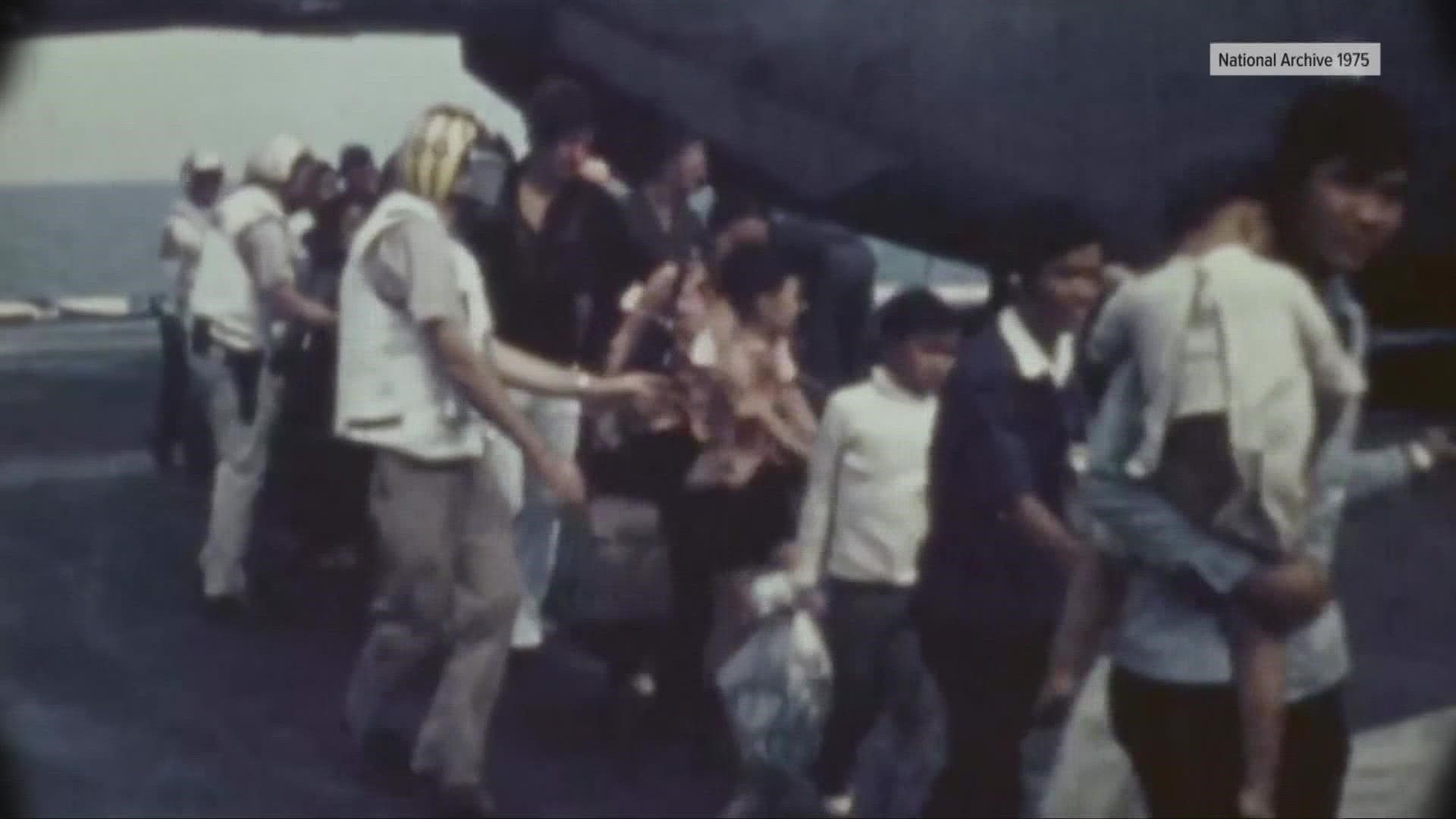SACRAMENTO, Calif. — Along a two-mile stretch of Stockton Boulevard in South Sacramento, you can sense the pulse of the city's Vietnamese American diaspora: Little Saigon.
It was here during the late '70s and '80s where Vietnam War refugees rebuilt their lives. But before this vibrant neighborhood came to be, there was a period of darkness.
"If we are ever in a situation where we did not feel like we would make it, she would kill me first and she would go with me," said Duy Nguyen, a Vietnam refugee and UC Davis graduate, recounting a suicide pact his mother made.
"I think most people are shocked by that- like, that's such bad parenting, right? But I think if you're not in that situation, you cannot judge," he said.
Nguyen described it as a situation of pure desperation to escape communist Vietnam.
"Escape is the best word for it because you were persecuted, you were hunted by the police," Nguyen said.
After landing in prison six times while trying to flee, he said on the seventh try, his mother, who was 23 years old at the time, bribed smugglers to take them on the ocean voyage. Nguyen was just five years old.
"Darkness is so prevalent in the memory," Nguyen said.
It was a journey that took a year, a time he remembers seeing very little sunlight. His family and 40 others trekked through jungles, waded through wave-whipping waters and traveled in the cover of night.
"We were always kind of encased in kind of a hole," Nguyen said. "It was filled also with like horrible memories of being like in a garbage truck. You know, of witnessing an execution."
Nguyen still recalled moments of humanity along the way- his mother giving him food scraps, a stranger hoisting him above sea waters. They were memories he would never forget.
After staying at a refugee camp in Malaysia, Nguyen was eventually able to reach a U.S. Embassy in the Philippines for sponsorship papers to the U.S.
"We arrived in the airport with three trash bags," Nguyen recalled. "And that was all of our belongings, and that's how we started America."
As a newcomer, Nguyen faced new challenges. He didn't speak at school for two years, though he did at home. His traumatic memories fleeing Vietnam had shown up in an early disorder known as selective mutism.
"I was kind of completely cut off from any kind of cultural lifeline," Nguyen said. "Definitely like the dominant theme of refugees is trauma."
His experiences eventually inspired him to pursue a career in psychiatry to serve marginalized communities, realizing he carried his trauma throughout his life.
Now years, even decades later, war-time trauma is still present and salient for many. Dr. Oanh Meyer, an associate professor at the department of neurology at UC Davis, said she began noticing changes in her mother as soon as she approached the age of 70.
"One of her major fears and symptoms was just this paranoia about the Vietnamese communists or vehicles being outside of our house," Meyer said. "So she would always close the blinds, close the windows."
She said it was like her mother's memories of war as a young woman were on repeat.
"She always talked about how she had to run underground when there were bombing raids in Vietnam. I knew that something was wrong," Meyer said.
Meyer's mother was diagnosed with dementia seven years ago.
"While their short-term memory is impacted, their long-term memory stays intact," Meyer said.
While researching caregiver stress, she noticed troubling trends among Vietnamese Americans like her mother. Vietnamese Americans are the fourth largest Asian origin group in the U.S. and are at critical risk for poor physical and mental health, according to Meyer. A sizable portion are living with depression due to war and resettlement. Meyer is on a mission to learn more.
"We really don't know very much about the prevalence of dementia or Alzheimer's in older Vietnamese. I think that's really important for AAPI (Asian American Pacific Islander) communities to have a voice," Meyer said.
She’s now leading the first-of-its-kind longitudinal study of 500 Northern California Vietnamese Americans over 65 through a $7.2 million dollar grant from the National Institute on Aging. Her goal is to examine potential links between the Vietnam War refugee experience and cognitive disorders. Participants' cognitive health will be tracked over five years.
What is the prevalence of dementia in this group? What are the factors associated with dementia? These are questions Meyer is trying to get answered.
Through a Sacramento partnership, some participants are being interviewed at Asian Resources Inc. in South Sacramento, headquartered in the heart of Little Saigon.
"I think that what we learn from Vietnamese Americans might help us understand other refugees and their vulnerability to health and health disparities," Meyer said.
She was initially surprised there's a wait list to join her study, as mental health is a taboo subject in Asian communities.
"I think there is just that cultural value of saving faith... saving faith for yourself, for your family, for your community," she said.
One thing that both Meyers and Nguyen have found in their work is that representation matters. Nguyen said it's about finally getting your story told.
"They feel like I'm not alone."
Click HERE to learn more about the Vietnamese Insights to Aging Program (VIP).
Click HERE to read Dr. Meyer's team's recently published study the "Impact of War and Resettlement on Vietnamese Families Facing Dementia: A Qualitative Study" in the Clinical Gerontologist.
WATCH ALSO:

